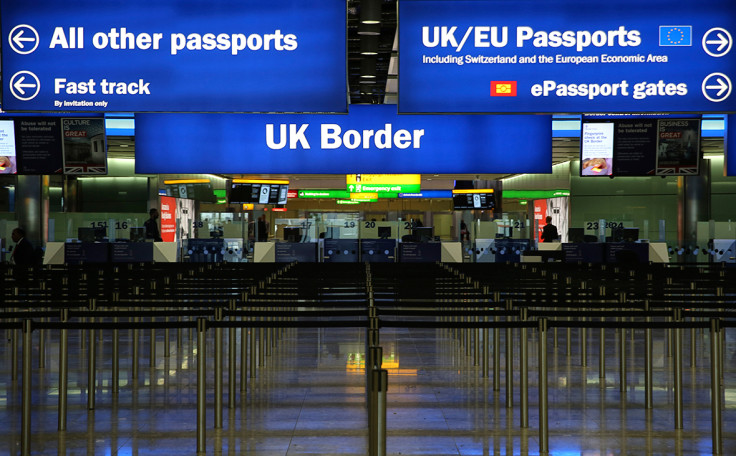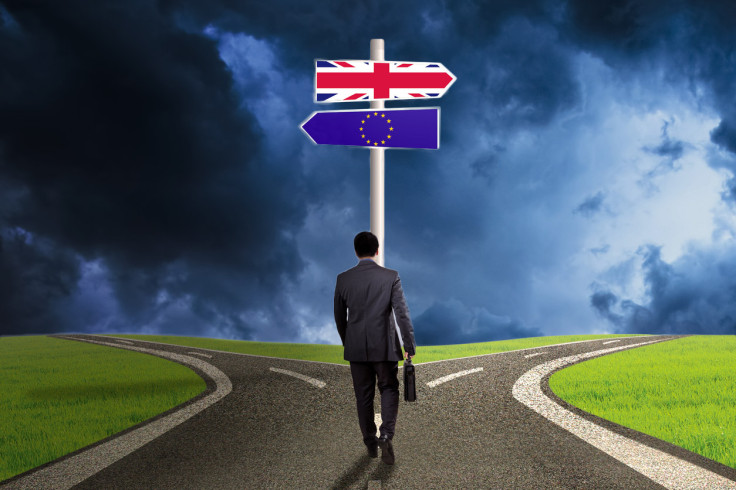A Britain without foreign workers is not Britain at all
Free trade has taken away just as many jobs from the British working class as the free movement of people.

While accompanying Prime Minister Theresa May on a trade delegation in India, the words of the Indian novelist Arundhati Roy rang in my ears: "Nationalism of one kind or another was the cause of most of the genocide of the 20<sup>th century. Flags are bits of coloured cloth that governments first use to shrink-wrap people's minds and then as ceremonial shrouds to bury the dead."
Here in Britain, a class of 'Intellectual Brexiteers', whose judgement is considered by some to be very sound, are calling for a deal that would lead to the UK securing freedom of trade within the European Union's single market, but not the freedom of people. They picture Britain as a global merchant, keeping her borders strong and the English Channel a moat around a protected castle.
They have turned their backs on the vision of a Europe where free trade and freedom of movement go together. Recently, the PM outlined a pathway that will lead us out of the single market.
Some of the Brexiteers, including Secretary of State for International Trade, Liam Fox, who cheered the PM's stance, vaguely recall the great days of free trade during the heights of the British Empire, however those were also the days when no one needed a passport to travel across it.
Passports were not generally used for international travel until after the First World War. So why get rid of the people's freedoms? Immigration has become enemy of the worker in some people's eyes: mobile workers swell the company profits and keep the costs down. Good for corporations, bad for people. But is immigration the real enemy of the worker? In Britain, free trade has taken away just as many jobs from the working class of this country, just as the free movement of people.
This is not conventional wisdom, but the people whose jobs have been outsourced from their country certainly agree. The Brexit vote put the freedom of movement in the crosshairs but it will be freedom of trade next if restrictions on immigration fail to bring Britain more jobs, as I suspect will be the case. It's a line worthy of Donald Trump's rhetoric: British jobs, in Britain, for British workers.
So, surely we should just cast off the corporate shackles of the EU? Say freedom of markets yes, freedom of movement no? Experts defend freedom of movement, but it is not their jobs that are under threat and so they have been discredited.
This is not the first time we have come up against this decision. Edmund Burke, sometimes called 'the first Conservative', made the case that politicians must represent the interests of the people they serve, not just their opinions: "Your representative owes you, not his industry only, but his judgement; and he betrays, instead of serving you, if he sacrifices it to your opinions."
So, are British citizens right to fear the freedom of movement? What is the case for the freedom of movement, to those who no longer want to accept it? Let's take the view of someone who believes that a free market is the best guarantor of individual freedom, an old-school, free-market Conservative, anti-intervention and open to the world.
Friedrich Hayek, a hero of the right, might present just that case: the principle of individual freedom. For Hayek and many who lived through repressive states, the answer was not primarily economic. For him it was driven by what was to them the most important reason of all - Individual freedom. "As a free individual, I cannot be kept as a serf in a land without justice. My destiny is my own and I must create it."
This is the principle that you or I can make our way with minimal intervention. As the libertarian party of the US states: "Political freedom and escape from tyranny demand that individuals not be unreasonably constrained by government from crossing political boundaries."
Freedom of trade is vital, but individuals can only prosper if they have the opportunity to leave a place of oppression. For Hayek, an immigrant born in Vienna, Austria who became a British citizen, this was a profound thought.
From Britain, Hayek observed with growing horror the costs of tyranny and watched as the cosmopolitan Vienna of his youth was destroyed, its Jewish intellectuals dispersed, or dead. The people whose names were kept in a ledger were almost wiped out.

So, loss of individual freedom was a matter of life or death, to Hayek, who had witnessed people killed after they were denied freedom of movement. The nation state can turn toxic, and this was the last and most dramatic example of such a poison that Europe has seen.
Yet we would be unaware in the extreme not to see shades of this re-emerging in today's new nationalisms in Europe. Borders are becoming prohibitive barriers or walls against which the vulnerable are crushed.
One of the strongest emotions I have seen in recent months is in young people, who fear that Brexit will trap them in an increasingly xenophobic UK. If you cannot leave the land you were born in, your horizons are constrained by another. You are no longer a free man; you are a serf. They fear an older generation has compromised their freedoms, ones they may need in order to make a respectable living in a global economy.
They might not understand how far back this instinct goes: The Magna Carta itself preserves the right to leave your land and return. If we in Britain cannot honour that, we can hardly call ourselves a nation at all.
Young people may not be old enough, but they are still aware that nations not only trade; they wage war. They can do so because they levy taxes from their citizens to buy weapons. So here is where nationalism ceases to be a question of romantic ideas about our common spirit.
Arundhati Roy's warning rings loud and clear as we debate trade and immigration in the UK, even prepare to shore up our defences and fortify our borders.
Just like Prime Minister Narendra Modi, hero of the 'Make in India' campaign, Theresa May is thinking hard about Britain's national industries. In fact, across government, it is time for our leaders to judge what a nation is for, and what it can do for its citizens. Edmund Burke's wisdom is vital here.
It is in everyone's interests to preserve individual freedom, and that means freedom of trade and freedom of movement. Britain was never great because it was isolationist. More than ever, we need a vision of our national future which allows us to see beyond our own borders.
Professor Sir Keith Burnett CBE is the Vice-Chancellor of the University of Sheffield and President of the UK Science Council.
© Copyright IBTimes 2025. All rights reserved.






















